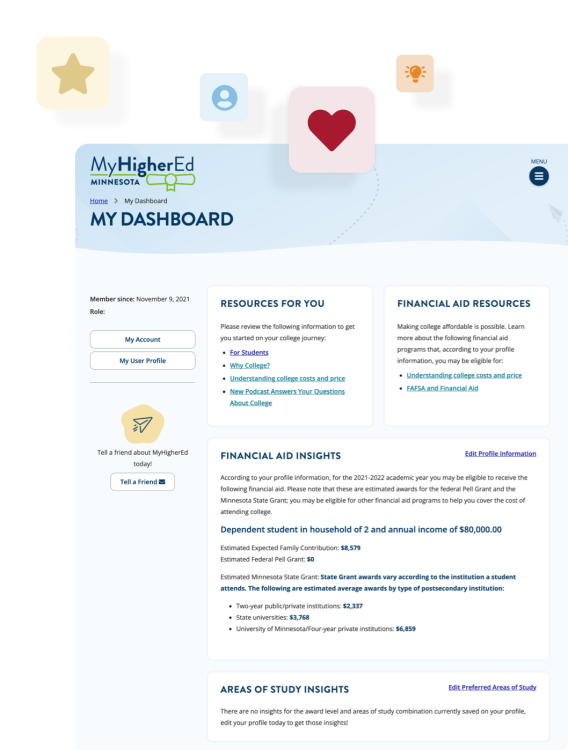Applying to college can be confusing and stressful, even for those who have gone through the process. So, it’s no surprise that during students’ junior and senior years, when their life is becoming increasingly hectic, they may depend on you to help and support them with this complex activity.
The many “to dos” during the application process include visiting campuses, reaching out to admissions offices, shoring up all necessary course requirements, preparing for and taking an entrance exam, and getting important paperwork and records in order. Here is a closer look at these items to know what to expect and how to prepare for college admissions.
Have more than one option
Many students have a first-choice school in mind, but it’s recommended that they apply to more than one college. This will not only give them a greater chance of acceptance but could also offer more options and opportunities.
There is no correct number of schools to apply to, and will vary depending on each person’s personal situation and priorities. Some students apply to a range of schools, from their aspirational selective colleges to those that are considered a “safety” option, or a school that offers them guaranteed acceptance. On the other hand, given the cost and time that’s required to apply to each college, some students choose to apply to only a few schools that will meet their needs, while ensuring acceptance.
Applying for college?
On episode 8 of the Life After Now podcast, host Liz Bolsoni talks about the college application process with Jodi Furman, founder of Enlightened Admissions.
Help your kid be prepared
Entrance exam such as the SAT or ACT
Most four-year colleges or universities require students to submit ACT or SAT scores. If you child applies to a school with open enrollment, he or she may not need to take the ACT or SAT. Otherwise, make sure they are aware of the test dates, times and locations. School counselors area good resource to find out test dates, times and how to sign up for them.
Campus Visits
Once your child’s career interests and priorities have been identified, and institutions have been researched and explored, a good way to narrow down a list of six or seven schools is by visiting college campuses.
Visiting the campus is the best way to learn about a school. It offers the opportunity to see the professors and students in action, use and explore the facilities, and get a feel for what college life would be like at that school. While campus visits aren't necessary, they are highly recommended, and most colleges have organized visit programs.
While on a campus visit, your child should:
- Pay attention to equipment and school facilities.
- Sit in on a class or two.
- Talk with current students in the program.
- Talk with instructors in the program.
- Talk with an admissions counselor.
- Talk with a financial aid counselor.
Admissions Office as a Resource
There are many important questions that will need to be answered as your child enters the application and college admissions process. One of the best ways to get those answers is by reaching out to prospective university’s admissions office.
Some common questions include:
- How much does it cost to attend this college (including tuition, room and board, fees, etc.)?
- What financial aid options are available?
- Does the school participate in federal and state aid programs?
- What percentage of undergraduates receive aid? How much do they receive on average?
- Which financial aid forms do you need to fill out and what are the deadlines?
- Does the college offer any financial aid of its own? If so, how do you apply?
- Will private/non-government scholarships reduce the amount of need-based aid you receive?
- How is financial aid paid out? When will it be received?
High School Transcripts
Most colleges will require a copy of your child’s high school transcript. You can request this be sent to the college(s) he or she is interested in through the high school's office or the school counselor.
Application fees
It is common for colleges and universities to charge an application fee (anywhere from $20-$75). If you can't afford it, talk to an admissions counselor at the college to which your child is applying. You may be able to get the fee waived.
Letters of recommendation
Four-year colleges or universities often require letters of recommendation. These recommendations are about what you student has accomplished, what kind of potential he or she has, and why the person writing the letter believes he or she should be admitted to that college. Recommendation can come from teachers, coaches, mentors, church leaders, employers and people your child has worked with in your community. Recommendation cannot come from relatives.
Essays
Many students who attend a four-year college or universities will need to write an application essay. If the essay topic isn't provided, your child can choose their own, or they can reach out to a school counselor, teacher or you to provide guidance and insight on what may constitute a good essay topic.
Often, the essay is an opportunity for applicants to highlight their passions, work ethic and writing skills or to explain academic low-points. It’s recommended they avoid reiterating information that can be found elsewhere in the application, listing accomplishments without elaborating and being overly wordy.
Interviews
If the school is very selective with its admissions process, a student may have to schedule an interview. The best interview tip is for students to relax and be themselves.
Other recommendations for a college admissions interview include dressing well, answering all questions truthfully, being prepared with a list of proudest accomplishments, asking questions and sharing why this is the college for them.




